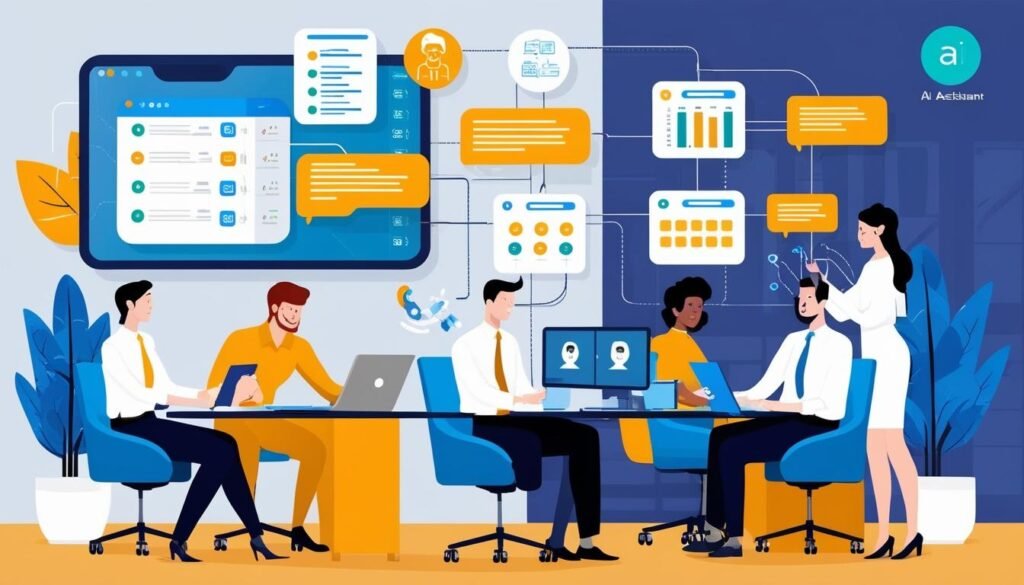Zoom’s latest innovation, AI Companion 2.0, integrates deep learning into its ecosystem, transforming from a copilot to a personalised assistant designed to elevate user experience and workflow efficiency.
Zoom has made a significant stride in the artificial intelligence sector with the launch of AI Companion 2.0, announced at Zoomtopia 2024. This innovation reflects Zoom’s evolving focus beyond traditional AI applications, aiming to deliver a more sophisticated and personalized user experience within work environments.
Smita Hashim, Zoom’s Chief Product Officer, shared insights on the company’s transition from viewing AI as a mere copilot to embracing it as a personal assistant for users. “We’re moving beyond AI as just a copilot. This is about creating a personal assistant that understands your workflows, preferences, and goals,” Hashim stated. This development marks a departure from conventional AI tasks and represents a proactive approach to enhancing everyday work by integrating AI functions deeply into Zoom’s ecosystem.
AI Companion 2.0 distinguishes itself by learning from individual user behavior to personalize the workflow, cutting through the noise of too many digital tools and helping users concentrate on crucial tasks. The assistant supports Zoom Meetings, Zoom Docs, and Zoom Chat, offering seamless assistance by summarizing meetings in real-time, managing tasks, and even providing gentle reminders to adhere to agendas.
Further differentiating this platform is its integration with popular softwares like Microsoft Outlook, Google Docs, and ServiceNow, thus embedding into existing workspaces and enhancing productivity. Additionally, Zoom has introduced AI Studio, enabling businesses to customize AI Companion’s functionality to suit specific industry needs, especially beneficial for specialized sectors such as healthcare and finance.
The unveiling at Zoomtopia included discussions on future ambitions with digital twins, aiming to create AI that functions as an extension of the user, outperforming even a manager’s understanding of workflows and priorities. This focus on hyper-personalization envisions a future where AI anticipates needs based on user habits and strategies.
Zoom’s approach incorporates a unique federated AI model, using technologies from Meta, Google, and OpenAI to ensure optimal results, emphasizing data privacy and user control. This method permits businesses to choose secure, in-house data processing when necessary or employ external models for more advanced requirements, integrating seamlessly into their technological infrastructure.
Moreover, Zoom announced that AI Companion will be available at no additional cost for its paying customers, reinforcing its dedication to providing value and accessibility.
In parallel, Microsoft has advanced its hybrid work support systems with its Microsoft Places application, part of the Microsoft Teams environment. This platform aims to enhance remote work coordination by utilizing AI to suggest optimal office attendance days and manage workspace bookings, heightening collaboration efficiency and resource management.
Microsoft Places, enhanced by Copilot—Microsoft’s generative AI—can analyze workplace patterns and assist in strategic office space planning, further benefiting from integration with other Microsoft tools. This enhancement ensures not only improved meeting and resource coordination but also supports strategic decision-making aligned with business objectives, demonstrating the transformative potential of AI in hybrid work settings.
Both Zoom and Microsoft illustrate their commitment to utilizing AI to redefine work environments, offering tools to enhance productivity and coordination in an increasingly hybrid workspace. These innovations mark a pivotal moment in the integration of AI into daily professional life, each offering unique approaches to tackling workplace challenges through advanced AI capabilities.
Source: Noah Wire Services


